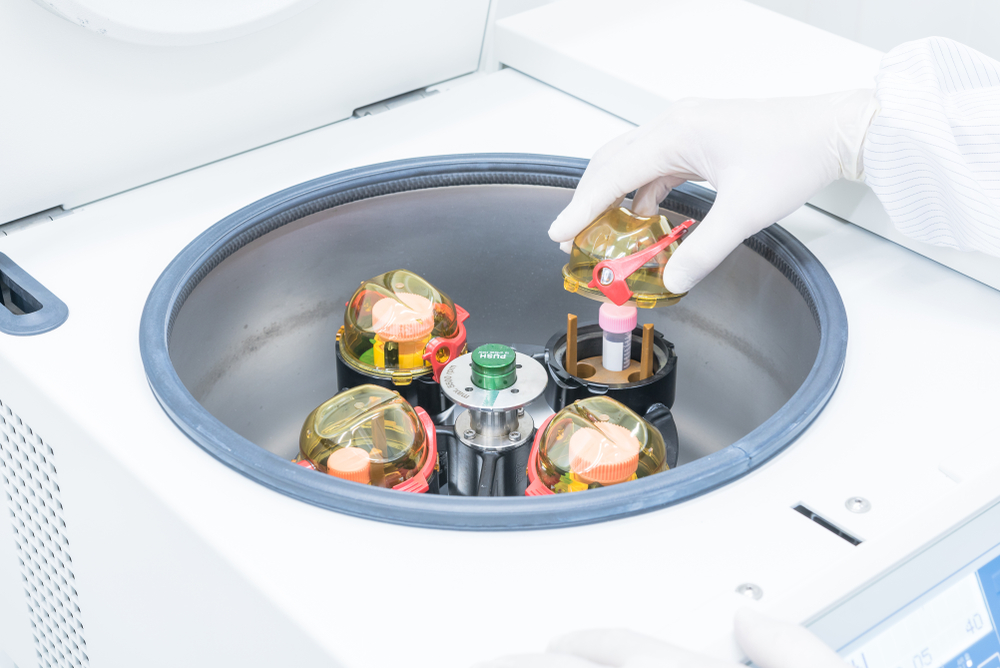
5 Important Diagnostic Testing Devices
Across the healthcare industry, countless labs work alongside clinics and medical practices to provide state-of-the-art diagnostic services. These tests play a crucial role in detecting medical conditions, diseases, viruses, and pathogens at the earliest stages, allowing for timely treatment and intervention.
The cutting-edge equipment used in these laboratories is essential for ensuring accurate and reliable results. In this post, we’ll explore some of the most important diagnostic lab equipment that laboratories worldwide depend on.
1. Centrifuge: Fundamental for Sample Processing
A centrifuge is a powerful laboratory device that separates samples based on density using centrifugal force. The high-speed spinning motion accelerates the natural separation process, helping labs quickly isolate different components in biological samples, such as blood and DNA.
Centrifuges are indispensable in various fields, including medical diagnostics, pharmaceuticals, and food sciences. Proper calibration and maintenance of a centrifuge are vital to ensuring safety and optimal performance in any lab setting.
It’s really important to take good care of centrifuges and use them safely. This means making sure the samples are balanced, using the right kinds of tubes, and making sure only trained people use them.
| Type of Centrifuge | Common Uses in Testing Labs |
|---|---|
| Microcentrifuge | Rapid separation of small volumes (e.g., DNA/RNA precipitation) |
| Benchtop Centrifuge | Routine sample preparation, blood component separation, urine analysis |
| Refrigerated Centrifuge | Processing temperature-sensitive samples (e.g., blood, proteins, enzymes) |
| High-Speed/Ultracentrifuge | Isolation of cellular organelles, microorganisms, viruses, and macromolecules |
| Cell Washer | Washing debris from red blood cells for specific diagnostic assays |
| Analytical Ultracentrifuge | Real-time analysis of molecular characteristics during centrifugation |
2. Evaporator: Getting Samples Just Right
Laboratory evaporators play a crucial role in sample preparation by removing liquids from a sample through motion, heat, or gas flow. Some evaporators are designed to eliminate organic solvents, while others remove water to create dry samples ready for analysis. These devices are widely used in drug development, environmental testing, and biochemical research.
| Type of Centrifuge | Common Uses in Testing Labs |
|---|---|
| Rotary Evaporator | Used in chemical and pharmaceutical labs for solvent removal |
| Nitrogen Evaporator | Uses nitrogen gas to remove solvents from samples |
| Vacuum Evaporator | Uses reduced pressure to evaporate solvents at lower temperatures |
| Centrifugal Evaporator | Uses centrifugal force for efficient solvent removal |
3. CO2 Incubators: Perfect Homes for Cells
CO2 incubators are essential for growing and preserving cell cultures in a controlled environment. These incubators regulate temperature, humidity, and gas levels (such as carbon dioxide) to support cell growth and maintain sample integrity. Routine calibration is necessary to ensure optimal conditions for research, medical testing, and pharmaceutical applications.
With specific environmental settings regulating temperature and humidity, they also maintain a predetermined gaseous content in order to stimulate cultures to grow and prepare for testing. However, each incubator should receive calibration on a regular basis to maintain optimal functionality.
| Type of CO2 | Common Uses in Testing Labs |
|---|---|
| Water-Jacketed Incubator | Maintains temperature stability for sensitive samples |
| Air-Jacketed Incubator | Uses heated air circulation for temperature control |
| Direct Heat Incubator | Ensures uniform temperature distribution |
| Hypoxia Incubator | Allows precise control of oxygen levels for specialized research |
4. Thermal Cyclers: Making Things Bigger
Thermal cyclers, also known as PCR machines, are critical in molecular biology for DNA and RNA amplification. These devices use precise temperature changes to separate DNA strands, enabling scientists to analyze genetic material for disease detection, forensic testing, and genetic research. With advancements in PCR technology, labs can now diagnose infectious diseases and genetic conditions with greater speed and accuracy.
When choosing a thermal cycler, labs need to think about how many samples they need to process, what kind of tubes or plates they’ll be using, how fast it can change temperature, and if they need the ability to test different temperatures at the same time.
| Type of Thermal Cycler | Common Uses in Testing Labs |
|---|---|
| Conventional PCR Machine | Standard DNA amplification for molecular biology |
| Real-Time PCR (qPCR) | Allows quantification of DNA in real-time |
| Digital PCR | Provides absolute quantification of nucleic acids |
| Gradient Thermal Cycler | Optimized for different annealing temperatures in PCR |
5. Bioreactors & Fermentors: Growing Life to Find Answers
Lab workers use these to grow biological organisms, like yeast and bacteria, in order to detect any type of illness, disease, or infection. Bioreactors and fermentors are integral both to diagnostic and research lab facilities, as they can produce vaccines, produce pharmaceuticals, and detect illnesses.
| Type of Bioreactor/Fermentor | Common Uses in Testing Labs |
|---|---|
| Stirred-Tank Bioreactor | Common in pharmaceutical and biotech industries |
| Airlift Bioreactor | Used for growing shear-sensitive cells and microbes |
| Bubble Column Bioreactor | Ideal for gas-liquid reactions and biofuel production |
| Packed Bed Bioreactor | Used in enzyme production and immobilized cell applications |
Conclusion
At Cryostar Industries, we specialize in the repair, maintenance, rental, and calibration of essential laboratory equipment. With over two decades of expertise, we are dedicated to ensuring that diagnostic labs have the precision tools they need to deliver accurate and reliable results.
And that’s why countless labs choose us to be their equipment service provider. The repair, maintenance, rental and calibration of scientific equipment is our two-decade specialty. In addition, we’re rigidly committed to delivering maximum benefits for every lab we serve.
| Call for Immediate Lab Services |
|---|
| Long Island, Nassau & Suffolk County Call: 516-333-4006 |
| The Bronx, Manhattan, Brooklyn, Queens, & Staten Island Call: 718-885-0833 |
| Albany & Southern New York State Call: 800-564-5513 |
| Piscataway, Northern & Central New Jersey Call: 800-564-5513 |
| Danbury Connecticut & Surrounding Areas Call: 203-748-7343 |
24/7 Emergency Service |